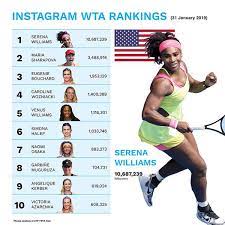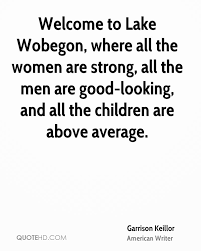The inequality also means many players lack the resources to improve. “The players ranked 150 to 250 are on the cusp of breaking through, but they need to be able to invest in themselves,” Gaby Dabrowski, another player, said. “You need a coach to guide you, to have a vision for your tennis, to see your blind spots, and you need money for that.”
I like to think I usually understand articles in what used to be called the “morning newspaper.“ Here, Gaby Dabrowski wants to move up, improve her ranking, win more matches against top players, make some money on the tennis circuit based on her ability and motivation. What I cannot comprehend is why Gaby thinks that she can achieve this goal unless more numbers are invented. Or, more likely, someone else moves down.
Suppose Gaby does get a coach, someone with vision, someone who helps her with her blind spots. Suppose she does get the money and does indeed move up. Are there now TWO players who are number 100? Are there, all of a sudden, two hundred players in the top 100?
No. The only way for Gaby to move up is for someone else to move down. No new numbers will be created. There will still be 100 spots in the top hundred. Garrison Keilor was kidding when he said that in Lake Wobegon all of the children are above average. That’s not what average means.
Long time readers will not be surprised by an abrupt segue from rankings in professional tennis to highly selective college admissions: Who gets to “move up” in the applicant pile? Does being a member of an underrepresented minority–a first generation college student, for example–confer an advantage on a candidate?
“It’s not fair” is the petulant refrain. If a White kid of privilege has better grades than a first generation student then the White kid should get the admit. If the first-generation student takes two buses to school and works 20 hours a week in addition to studying, that was her mistake. She should have chosen to be born into a better family. It’s just not fair that a kid from an economically disadvantaged background with an A- average should get preference over a kid from a privileged background with an A average.
Those in favor of the advantaged student being admitted repeat the word fairness. As if college admissions has ever been fair. As if athletes with modest academic credentials haven’t been admitted over their more academically accomplished peers. As if legacies whose great grandparents had the opportunity to attend selective colleges were not admitted disproportionately over students whose gender or skin color precluded their applications from being considered. As if colleges didn’t admit a kid from a geographically obscure state or nation so that the college could brag about “students from all 50 states and many foreign countries.”
In 2021, colleges crow about being the first institution to admit a Black man or a White woman. In the same way colleges previously took it for granted that there were no Black men or White women as students of their campuses. If you want to talk about fair, ask a woman who was an undergraduate at Princeton University in 1968. Ask a Black man who studied at the University of Mississippi in 1961 how he enjoyed his education. Except of course there weren’t any.
What it comes down to is simple: if there are two thousand first year beds at a highly selective school, then there are two thousand first year beds. Arguing about who should sleep in them doesn’t open up any more opportunities. Admitting more Asians, legacies, athletes, Blacks, Hispanics, geographically diverse, first generation, or economically disadvantaged kids means admitting fewer economically disadvantaged kids, geographically diverse, first generation, Hispanics, Blacks, athletes, legacies, or Asians. If you take one more of these, by definition, you take one fewer of those.
So let’s boil away the excess verbiage and get down to cases. Either we’re going to dance around here all night or go get married. You can’t have it both ways: to advocate for one group—wealthy White kids—is to argue against another, impoverished students from Gulagistan for example. You can disguise your argument all you like, “Percy has had two years of calculus in high school and Boris focused his studies on finding his foot.” But at the end of the day there are still two thousand places. It’s time to stop whining and acknowledge your preferences for what they are: preferences.
Even the NBA is tightening up its rules about players crying foul and flopping backwards on the court. Favoring one group is equivalent to arguing against another. Gaby moves up in the tennis rankings only if another player moves down; Johnny scores above the mean on the SAT only if Susie scores below; If the Dolphins win, the Jets lose.
Opinions about admissions are like digestive systems; everyone has one, but nobody wants to hear about yours. Your preference for White kids or wealthy Hispanic kids or kids who have had two years of calculus or kids whose grandparents contributed to the college are just opinions. It’s the colleges who have to make the hard decisions about whom to admit.
The whole morass of opinion and vituperation about who should be admitted to highly selective college is a tempest in a teacup, a meaningless proxy for thinly disguised preferences based on race. Your preferences are showing. The answer for colleges is hard. But the answer for parents is as simple as it is obvious: who your child is matters more than where your child goes. If your kid is a strong student, motivated and bright, she will do well subsequent to matriculation at Olde Brick University or North Cornstalk State.
I can’t help Gaby move up in the rankings. Tournament wins are a scarce resource. But there are lots of colleges where your child can be part of an extraordinary educational experience—whether or not she is Black, White, Hispanic, an athlete, a legacy, or hails from Gulagistan.
By ignoring the madness—this highly selective college admitted more kids from this category! Susie was rejected from that highly selective college even though she had two years of calculus in high school!—you communicate the truth to your kids. Choosing and applying to college need not be a vicious or visceral experience. And strong students do well where ever they go.








